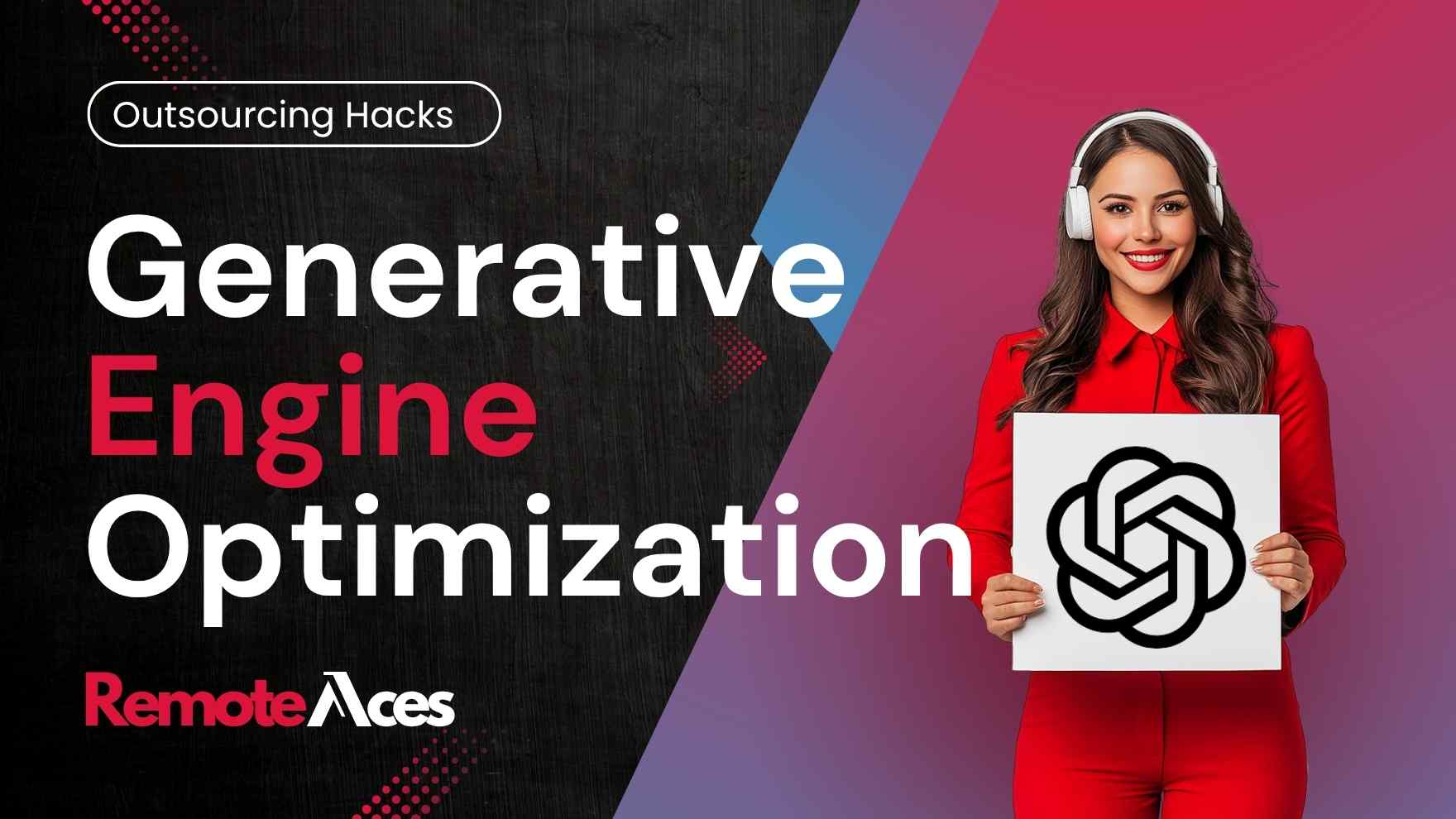Small Teams, Big Reach: Generative Engine Optimization Services
Imagine this: a potential customer types a question into an AI assistant – “What’s the best local bakery for gluten-free bread?”, and your business is directly cited as the answer, without them ever needing to click a link. This isn’t science fiction; it’s the present reality of online visibility. A recent Statista report (2025) estimates that over 1.2 billion people now use AI assistants for information, a number projected to grow by 20% year-over-year. If your content isn’t optimized for these powerful AI engines, your small but ambitious team risks disappearing from where people actually look for answers.
A decade ago, small businesses fought tooth and nail to claim a spot on Google’s front page. Today, the battlefield has shifted dramatically. Welcome to the new frontier—Generative Engine Optimization Services (GEO)—where your content must win over not just crawlers but the AI engines that interpret, summarize, and serve your information directly to people. In this guide, we’ll unpack how your growing business can master GEO and stay visible in the AI-driven era—without needing a mega-corporate budget or an in-house army.
What Is Generative Engine Optimization?
Generative Engine Optimization goes beyond traditional SEO. Instead of just pleasing search algorithms to rank higher on a page, GEO ensures your content is clear, factual, and context-rich enough to be chosen by Large Language Models (LLMs) like ChatGPT, Gemini, and the next generation of AI-powered engines.
These engines don’t just rank pages—they summarize and generate direct answers for your customers. If your content isn’t optimized for these engines, you risk disappearing from where people actually look for answers.
To pick the right AI tools to power your virtual support team, explore our guide: Generative AI Showdown – Which One Should Power Your Virtual Assistant Team?
How GEO Differs from Old-School SEO
Old SEO: optimize for bots, keywords, and backlinks.
GEO: optimize for clarity, credibility, and context.
| Aspect | SEO | Generative Engine Optimization |
|---|---|---|
| Goal | Rank on search pages | Be cited by AI answers |
| Content | Keyword-focused, skimmable | Fact-rich, trustworthy, context-heavy |
| Style | Structured for crawlers | Written for humans and AI logic |
| Technical | Tags, mobile-friendly, backlinks | Schema markup, structured data, factual sources |
| Metrics | CTR, bounce rate, SERP rank | AI mentions, citations in LLM outputs |
5 GEO Fundamentals for Small Businesses
1. Expertise That AIs Trust
AIs pick up on experience and authority. They favor content that demonstrates real-world knowledge, not generic fluff. Make sure your articles, FAQs, and guides are written with clear, practical insights. According to Search Engine Journal, E-E-A-T (Experience, Expertise, Authoritativeness, Trustworthiness) signals are now a must-have, not a bonus.
If you’re wondering how human support stacks up against AI automation, don’t miss our deep dive: AI vs Human Assistants: A Business Survival Guide
2. Organized, Context-Heavy Content
Break content into clear, modular sections. Use subheadings that answer questions directly. Include relevant stats, charts, and examples. A 2024 Content Marketing Institute study found that content with well-structured sections is 35% more likely to be reused by generative engines.
3. Keep Evergreen Updated
Don’t let your blogs gather dust. Refresh cornerstone articles with current data and references. AI models love up-to-date facts. A 2025 HubSpot survey shows 61% of small businesses updating evergreen content see higher AI-driven traffic than those who don’t.
Practical Ways to Apply GEO Today
Create Fact-Rich Guides
Long-form, evergreen pieces—1,800+ words—answering multiple related questions provide generative engines with ample material. Think: detailed how-tos, industry reports, or resource hubs. For example, a pet store could create a “Comprehensive Guide to Puppy Training” covering everything from housebreaking to basic commands, citing reputable dog trainers and behavioral scientists.
Want to amplify this effort? Learn how to make the most of dedicated support with Your Secret Weapon for Ranking Higher: SEO Virtual Assistants.
Cite Trusted Sources
Always link to credible studies, government sites, and data. LLMs favor verifiable content. Add footnotes or inline citations to back up claims. This builds the trustworthiness (the “T” in E-E-A-T) that AI values.
Add Visuals and Alt Text
Generative engines increasingly tap multimodal content. Images, charts, and infographics with descriptive alt text boost comprehension for both humans and AI. Ensure your alt text accurately describes the image content and its relevance.

Practical Generative Engine Optimization Support is based on structuring evergreen content with schema markup to showcase expertise and engage customers conversationally for small businesses.
Tracking Your GEO Wins
You can’t manage what you don’t measure. Besides traditional metrics like organic traffic, tracking how often your content is mentioned or paraphrased in AI outputs is crucial. While specific, widely available “AI mention” tools are still evolving, look for platforms that offer:
- Brand Monitoring Tools: Tools like Semrush and BrandMentions can help you track mentions of your brand name or specific phrases in general web content, which can sometimes indicate AI citation.
- AI-Specific Tracking Platforms: Emerging tools like Keyword.com (as mentioned in recent industry discussions) are designed to track brand visibility across generative AI platforms like Google AI Overviews, ChatGPT, and Gemini, showing which pages are cited and how often.
- Direct AI Chatbot Interaction: Regularly test AI chatbots with questions related to your niche. Observe what answers they provide and if your content or brand is referenced.
Look Ahead: The Multimodal Shift
GEO doesn’t stop at text. Next-gen engines process images, video, and audio. To make your content future-proof, consider:
- Video Explainers: Create short videos that summarize key information from your articles.
- Infographics: Condense complex data into easily digestible visual formats.
- Voice Notes with Transcripts: Offer audio versions of your content, accompanied by full transcripts for AI parsing.
Wrapping Up: You Don’t Have to Do GEO Alone
Generative Engine Optimization Services aren’t a luxury anymore, they’re survival for small businesses in an AI-first world. The good news? You don’t need an in-house SEO department to keep up.
At RemoteAces, we have virtual administrative assistants that specialize in seo and know how generative engines think. They handle research, content updates, schema markup, keyword tracking, and ensure your voice remains clear and credible—while you focus on growing your business.
Ready to empower your small business with GEO? Contact us today to learn how our virtual administrative assistants can help you dominate AI-driven search—so your business stays where AI and customers find you first.


